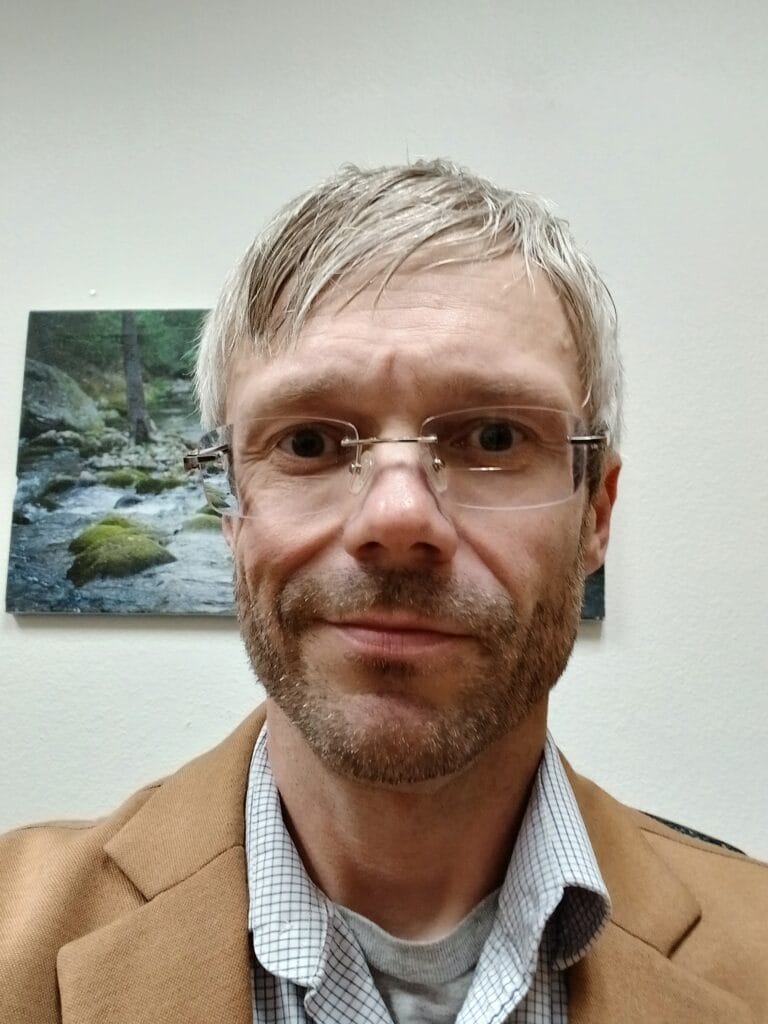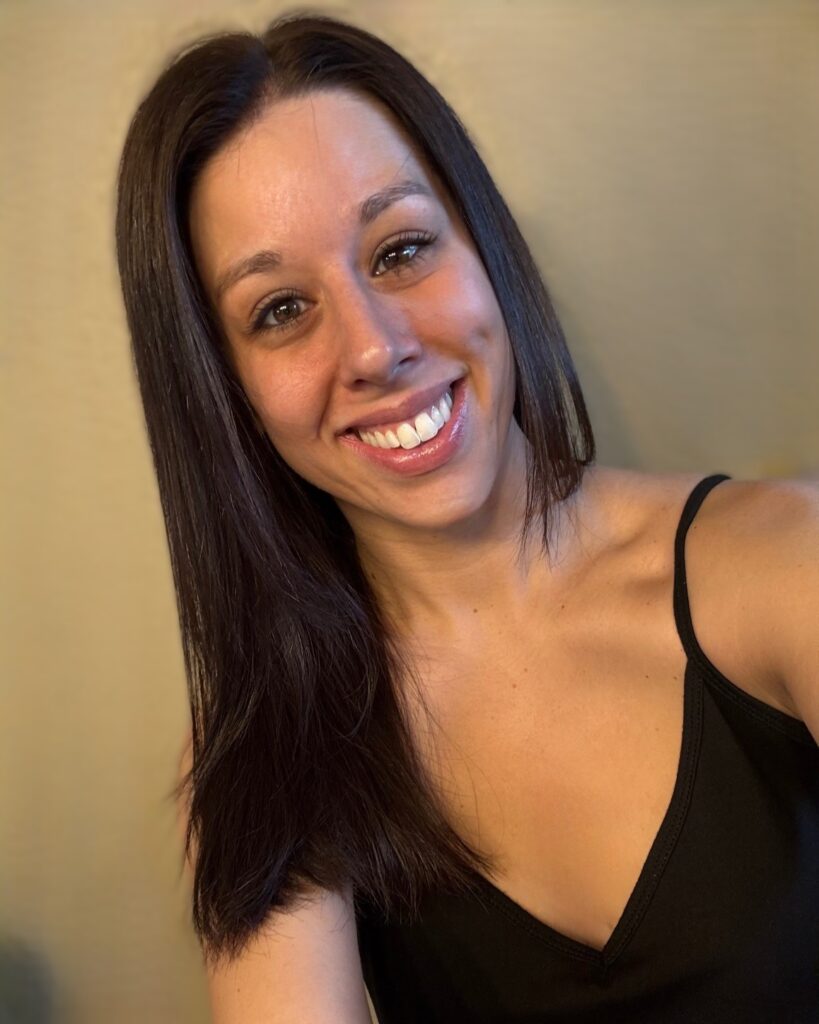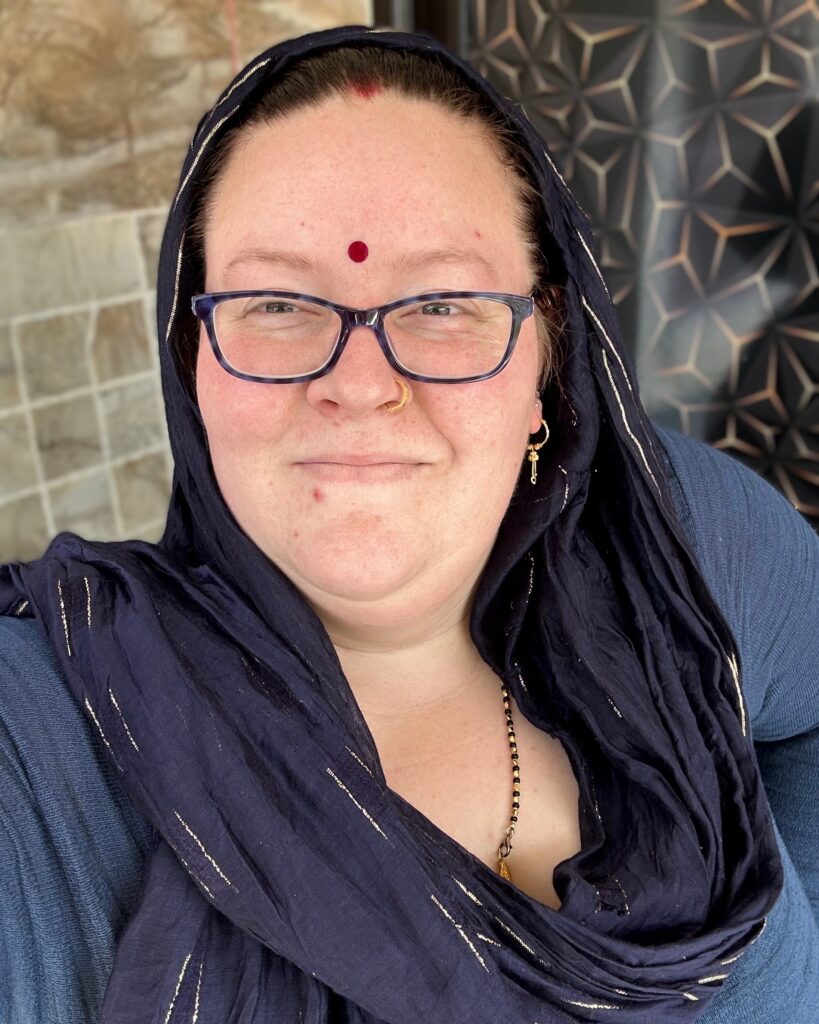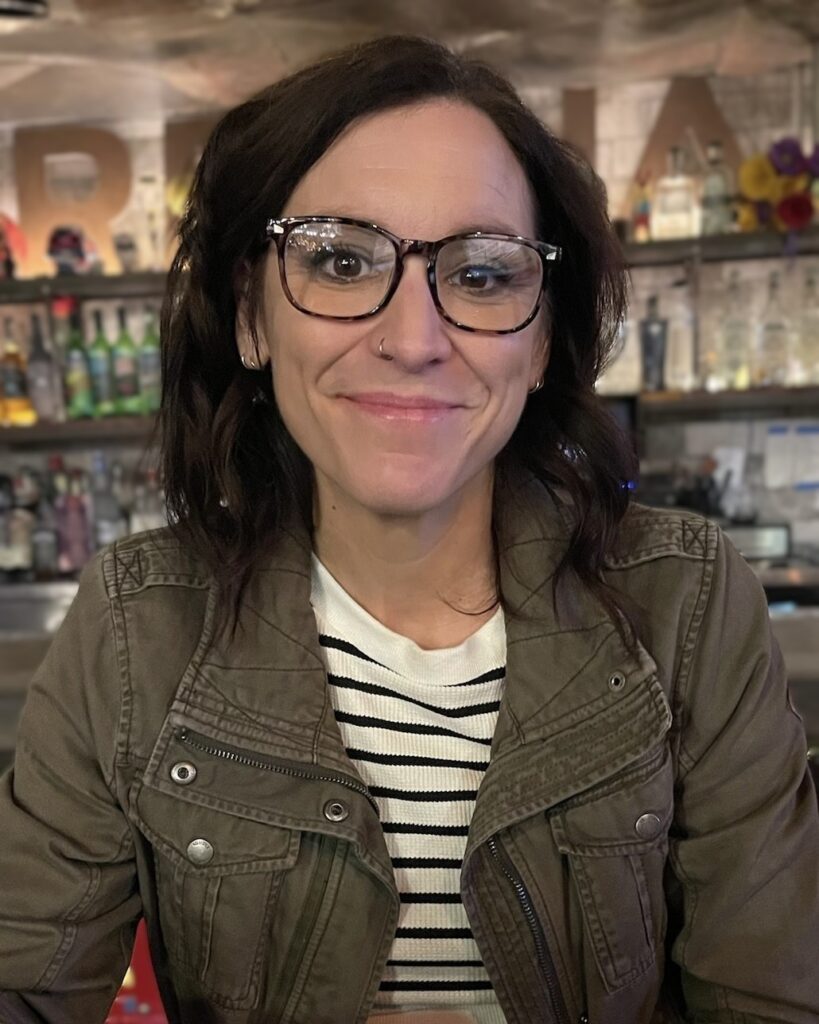Gaby V. Everett
You Know What This is About
Gaby V. Everett
You Know
What This
is About
The day they started bottling magic was the day humanity fell. They put it in all kinds of bottles—orange, green, brown, blue—but mostly orange and green. Even when the bottles broke or shattered, their shards were still magic, assuming you knew how to use them.
Folks started mugging each other for the magic. They’d wait for the bars to empty, their denizens filtering into the streets like bubbles down a drain, waiting to be popped. Often, the denizens would say, “Look, we took all our magic already, all we’ve got left is some tobacco and this umbrella.” They’d glance at the sky, pondering the odds.
There was magic hidden in strange spots out of the way, inside unguessable places, such as the gas tank of a Honda motorcycle, or between the couch cushions of diner seats. Sisters braided their remaining magic into each other’s hair, and brothers passed it between palms via handshakes or embrace, whispering, “Stay safe out there.”
I was no stranger to the magic. I was quite addicted and adept at acquiring it, though the recent drought had me itching for it. I was staving off the cravings with hugs and kisses, with late-night reruns, and bouncing my legs to the beat of metal music, pretending I knew what they were screaming about. I suppose they were upset—probably about the magic.
One night, on the midnight news, an unskippable ad gave way to a breaking segment: 27 dead, 6 injured in shooting. War on Magic Continues. The pretty newscaster delivered this information with visible bags beneath her eyes—things were wearing on her. Her ruby blazer seemed to steal the warmth from her face like a vampire. Still, I remained transfixed on the dark of her eyes between interviews and scenes from the street, where people stood to the side of an area demarcated by yellow tape. I even recognized my dealer in one interview, where he, with a half-lidded stare and lax shoulders, boldly asserted he had no clue who was bringing the magic into the neighborhood, but that he hoped they would be stopped: Think of the families.
Of course, he was thinking of the families. He was thinking of his two daughters, of the elderly Mrs. Choi down the street with her adult son and his infant son, of the young couple in the old bungalow, of the artist in the garage who called a cinder block with a plug-in burner on top of it her “kitchen.” He was not thinking of the exchange of cash, baggies, bottles, or even curses, but of hope—salvation. Of bills and a painless shift at work. Of being able to wake up and feel the sun, not just see it.
It was this clip that told me where to find him. The newscaster had yet to sign off when I grabbed my jacket and wallet, jamming my arms through the sleeves while trying to slip on my shoes. Yes, my dealer had been thinking of the families. Mostly his, I assume, given I filed as single and lived as such, unless my betta fish was taken into account. Despite the ongoing political affronts to the illicit sale of magic, there were rumors of Big ‘ol Pharma Daddy and Co. looking to sweep the streets clean of worker bees like my dealer; they wanted the sole ability to produce and hawk magic themselves. However, I knew I would never make it to that day unless I procured something to tide me over. This brings me to the required disclaimer: I am not a bad person. I am simply a person in pain.
I drove downtown, out to Freemont where the bar-laden street heaved with people trying to find something nice in themselves. I admit, I considered popping into a place or three, but I had a mission. The disc in my neck would not be quiet without some magic; the disc kept me awake at night. It kept me terrified of car wrecks, exercise, and even sex. I knew it was the result of many, many years of keeping my head down day-in and day-out. Wine used to help. It’d been three years of relentless ache, and fermented fruit and vitamins can only do so much. If only I had kept my chin up or worn better shoes, then perhaps I’d have avoided everything to come.
I am not a violent individual. I am an animal, and I am hurting in the way animals do when life has sanded them in the wrong direction, left them frayed and on the fritz with no fix. But the magic could fix me. The magic can fix anything.
Mr. Dealer lived in a ground-level, two-bed apartment in a ‘70s-style building, the kind that stretches horizontal rather than vertical. From the couple times I’d entered his abode, I knew the unit was split like a T, where you enter at the foot and the back divides toward either bedroom.
I never knew Mr. Dealer’s name, nor the names of his daughters and girlfriend, who was a woman with strong eyebrows and a long nose. She never smiled and had always regarded me with suspicion—as a mother should. Mr. D—as he liked to call himself—could be anyone. He could be a David, Daniel, Damien, or even Dante. Or, he could just be Dealer.
I had parked far from his unit, wary of his girlfriend recognizing my car. She seemed the type to watch from her windows. If she knew who I was, she might be inclined to shut the blinds and pretend not to be home. I had accounted for that in my plan, and, just in case, dressed fairly nondescript and dark. One may wonder why I’d concern myself with this. One may even think I was looking to speak with Mr. Dealer himself, though, in that case, you’d have been wrong. I was only after the magic.
The magic, as most knew, did not have a singular taste, smell, or even appearance. But when you got it, you knew. As a reasonable businessman, Mr. Dealer was unlikely to keep all his wares on him, but I knew of at least two spots where it was probable to find them, and they would be in the apartment. I approached the door with caution, as there were no other ways to enter, sans a large window next to the door. I knocked softly with my knuckles, waiting to either be glared at or ignored altogether. To my surprise, the door opened, and the four-foot frame of a seven-year-old girl stood before me, silent. Staring. I dropped the hood of my jacket, looking down at her. She had her mother’s eyes: cold, ruthless. I imagined she would one day break bones—her own and other’s—without so much as a shout.
I gave her a slight nod. “Is your father home?”
She did not answer at first. Then, she shook her head, her posture beginning to slacken as she realized I was not some big, scary man, but a woman with her hair in a braid. She shook her head. It was then she stepped back and revealed that, in her tiny hand, she held a large kitchen knife.
“Oh, I see,” I said, watching the glint of the blade. “What about your mother?”
“You should leave.” From the middle of the T, the girl’s younger sister emerged. She did not have a knife, nor did she regard me as harshly. The eldest rushed to her, grabbing her shoulders and moving the girl’s small body behind her own. Truly the eldest. “Leave,” she asserted again, and I could hear the fear in her voice, mixing with anger as she hushedly instructed her sister to go to their room.
“I think I forgot my purse here,” I lied, crouching down. I was eye-to-eye with her. “I just need to see if I left it.”
“No strangers inside,” the girl said, firm.
“How about this,” I began, fiddling with my wallet, “I’ll give you five dollars if you check your dad’s room. It might be on the dresser. It’s brown with a fluffy keychain. I’ll leave right after.” This was a lie, of course. Fluffy keychains were for people who never went anywhere exciting—only safe, spotless places without grime. Still, the girl didn’t budge. In response, I pulled two tens from my wallet. “One for you and your sister. Or both for you, if you want. You get to decide.”
This was all it took. After a pause, she snatched the bills, jamming them into her pocket and pointing the knife at my nose, “You stay here.” She ran to the top of the T, scrambling to her parents’ bedroom. I estimated I had about two or three minutes. Really, I only needed one.
I moved quicker than her, to the television console where a sliding door rolled to reveal a locked cashier’s box, one with one of those spin-dial combinations. I was tempted to shake it, but I was worried the girl would hear me. Instead, I tucked it under my arm and resolved to run. Twenty dollars for the box, I thought. This was the cheapest cure I’d found in years.
I ran. I didn’t even close the door. I sprinted through the dark of the parking lot, tripping over still-forming potholes. As I approached my car, I could hear a rattle from inside the box, plastic on metal—magic. It was the best deal of my life. But anyone with wisdom knows to be skeptical of a good deal. I wasn’t safe. Not yet.
As I peeled out of the lot, I spotted the doorway of Mr. Dealer’s apartment in my rearview. Two silhouettes stood backlit by warm light. They were pointing, jumping, and I could hear their muffled yelling as a third form rushed to them from a car, haphazardly parked with the engine still on. A man-shaped form. I prayed the night was dark enough to conceal me. I prayed the magic was enough for my neck to stop throbbing, for my stomach to stop feeling leaden.
I opened the box with a hammer. I didn’t even make it home before my curiosity, my desperation, got the better of me. I drove into the desert, far from any homes or streetlights, foot heavy on the pedal. Once I was sure I was alone, I had taken the box—along with an array of tools I had in the trunk—and started whaling on the lock. I kicked it, threw it, slammed it against the side of various boulders. I wasn’t sure how long it took, but I was sweating—my body inflamed—by the time the dented-up box cracked open with a puff of dust. Whether sand or powder, I couldn’t tell.
Greedily, I crawled to it, sinking to my knees and rummaging through its contents with the help of my headlights. I was so engrossed in this that I hadn’t noticed the sounds of tires approaching, and I was chomping through a series of pressed pills when I noticed, over my fevered crunching, the sound of a car door slamming.
“There’s a tracker in there, you know,” Mr. Dealer said, calm. “You scared my girls tonight. The older one gave me those bills in tears.”
There was no explanation on my end. I simply kept chewing. I could feel it, the magic, flooding my systems with nothingness: no pain, no anguish, no worries. There was no one with him from what I could tell, not that my senses were sharp, currently. I knew he was behind me, and I knew the box was hidden by my hunched-over body.
“Want to explain yourself?” he asked. I went to turn, hearing the click of something mechanical. “No, no. I didn’t ask you to move.”
I considered putting my hands up. I knew it would likely be futile. I hovered over the box, waiting for my brain to instruct me on how to play. Then I knew.
“Sorry, Mr. D.” It was the first time I’d ever called him that. “I didn’t mean to scare them.” I covertly opened another baggie from the box, palming all its contents into my mouth. Then I tore open another, whipping around. The night spun around me as I did so, seeming to lag, and the needle-tip stars smeared into fine, silver lines. Some of the baggie’s contents spilled on the ground as I met Mr. Dealer’s line of sight. Some began trickling into my palm, like sand from an hourglass. This one was a blue powder. I held up my hand. “You can have it back.” Then I blew.
Mr. D began to cough, waving his hand as I made for the box. Its banged-up body was cool in my hand as I hurled it at him. I did not wait to see if it hit him, but I heard him swear profusely, followed by the thunderous sound of a gunshot. My ears rang even as I clamored to my car, and I could feel powder sticky on my cheek. I struggled to throw the vehicle in reverse, barely managing as my blood sang higher and higher, a crescendo of adrenaline and bliss. Nothing could take this from me. My hands shook. I stomped the gas with no plan, not a thought in my head, spurring up rocks as I drove directly into a boulder. The sound of impact was almost as bad as the gunshot.
Once, when I was little, my mother and I had been hit by a drunk driver. He’d swerved out of his lane, hitting us on my mother’s side, knocking us into oncoming traffic. The sound of now was the same as then, the same as the gun, thunder of thunder, the sound of sudden death. I felt my body fly forward; my ribcage was thrown against the steering wheel so hard that the horn went off. I did not go through the glass; I hadn’t enough speed for that. The airbag failed to deploy, and I was grateful since there’d been a recall on it, as people said it would shoot out shrapnel. Despite the wind being taken from me, I noted the strange sensation of whiplash, my neck rag dolling with an unnatural velocity. Mr. D was spotlighted by my high beams when I noticed I could no longer move, though my neck—the disc that had not quieted in years—simply had no feeling. No pain. Nothing.
There was no talk this time. Mr. D—now Mr. Death—took aim and fired through my windshield, which shattered to the symphony of my car horn and a litany of curses. It burst like a supernova, shiny, sharp, raining upon me as I felt something hot in my neck. Something leaking, and then, at the back of my throat, like thick whiskey being poured at an alarming rate. Mr. D approached the driver side window, which had been down the entire time. He was bleeding from his forehead, a massive gash jagging from eyebrow to ear. He stared at me, scanning over my slumped body and twitching hand. He pulled the baggie from my fingers and said, “For your troubles,” before sprinkling some on my lips, pocketing the remainder.
It seemed ages as I sat, unable to move for whatever reasons, and I watched the blur of Mr. D collect various things from the dirt until he, too, disappeared into the night. I began to question if he had really been there at all, and the air became cooler and cooler until my body ceased to process temperature anymore. In the stars, I found Andromeda and not much else, as they began to shutter and swirl. I managed—with a couple gurgling breathes—to clear my lips of the blue. The stars slow danced then, back and forth against the black, to the soundlessness of the desert. Pure. Magic.
Hailing from Sin City, Gaby V. Everett is a failed supervillain with an affinity for coffee at midnight. Everett possesses a BA in creative writing from Colombia College Chicago and enjoys hiding secrets in plain sight; they can be found in Dream Noir, Mulberry Literary, The Acentos Review, Fatal Flaw, and more.




